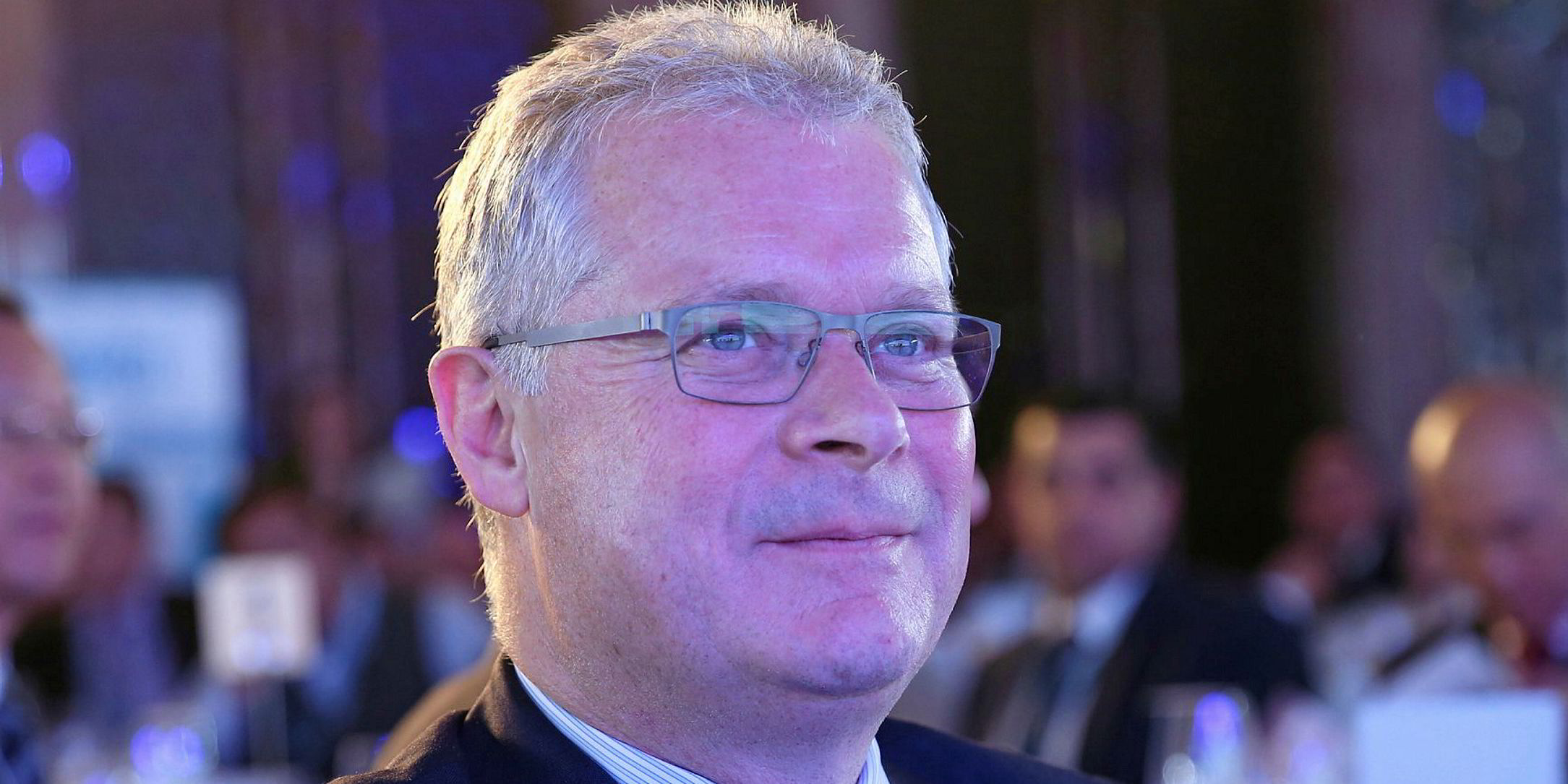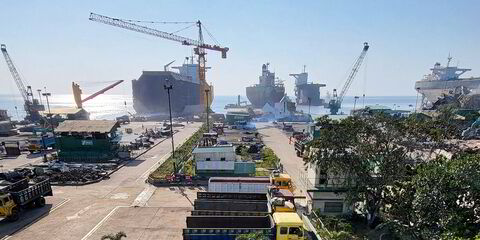The Bimco board has rubber stamped a further five-year term for secretary general Angus Frew, who was appointed four years ago to modernise one of shipping’s most prominent associations.
When he joined, research showed Bimco’s 2,000-plus members were loyal and considered the association to be both “trustworthy and relevant to the industry”.
But Frew still faced the challenge of bringing it up to date for the digital age and making it a more practical organisation for its members.
The first step was to come up with a new logo and branding and improve communication with members, which he addressed with the launch of a new website.
“We set out focusing on how to deliver more value to members," he says. "We put in place the tools to communicate with our membership with a user-friendly website. All our members know we deal with contracts and clauses, but we wanted to make sure they are aware of the other services we have available."
His recent contract renewal suggests the board think he is on the right track.
“I think the executive committee wanted to ensure that there is continuity and that they were happy with what has been achieved so far,” he says.
So what has been happening? There has been an increased emphasis on Bimco's services, such as advising members on operational matters, as well as charter party and contractual clauses.
For example, one project involved helping a containership operator plan its global ballast water management to comply with incoming environmental regulation.
Bimco has also sought to help members better understand the shipping markets with regular updates from Bimco analyst Peter Sand.
Sand's report, Road to Recovery, on how the dry bulk market will emerge from recession and its impact on a variety of sectors is generating particular interest.
“We are trying to tell people we are a practical organisation with a whole range of experts available to them,” Frew says.
On the contractual side, Bimco has updated the standard bareboat contract Barecon. The next challenge, says Frew, is to update the general charter party Gencon.
He believes one of the major issues for Bimco members in the next few years will be the new regulations on global sulphur emissions set to take effect from 2020.
While an IMO study says there will be enough 0.5% low sulphur fuel available to shipping to meet targets, a report sponsored by Bimco concludes that there is simply not enough desulphurisation capacity to produce the required volume.
Bimco is now working with the IMO’s implementation committee on the sulphur regulation to gain an understanding of what the potential fuel shortfall might mean for the sector, and how it may reward or penalise shipowners and operators.
“We have to make sure that implementation happens smoothly and that there is a level playing field,” he says.
“This is one regulation where non compliance could bring huge financial benefits. Our job is to make sure people are aware that the implementation takes this [possible shortfall] into consideration. Personally, it is a top priority because too many people are saying this will not be a problem.”
Another issue high on Bimco’s agenda is the regulatory move towards reducing carbon emissions.
Frew says Bimco’s strategy is to form a united position with other industry bodies such as the International Chamber of Shipping, Intertanko and Intercargo.
But he cannot help feeling peeved that shipping does not get the credit for what it has achieved so far.
“I start from the position that the industry is already doing a good job,” he says. “I honestly believe that shipping’s [greenhouse gas] emissions may have already peaked in 2008.”
Pointing to the billions of dollars already spent on environmental measures, from ballast water treatment to nitrogen oxide emissions reduction, he thinks it is unfair that shipping is so often pilloried for its efforts on environmental issues.
That is not to say that he thinks the job is already done.
“It is an emotive subject and we can’t be complacent,” he says. “Of course we should sign up [to reducing carbon emissions]. We need to put targets up there and that is what the IMO is trying to do.”
Bimco’s own targets are for a fully decarbonised industry after 2050 and a doubling of ship efficiency before that date.




